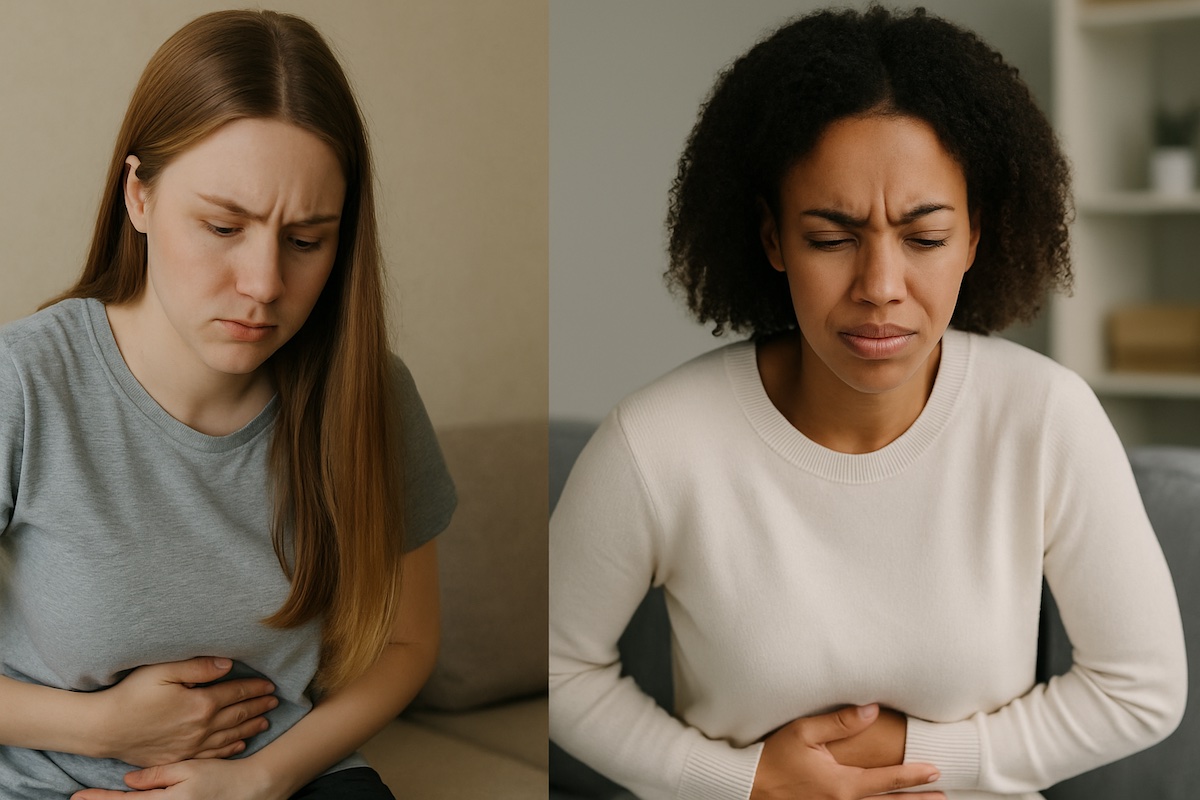Polycystic Ovary Syndrome (PCOS) and endometriosis are two common yet often misunderstood conditions that affect millions of women worldwide. While they share some overlapping symptoms—such as irregular periods and difficulty conceiving—they are very different in cause, treatment, and long-term impact on a woman’s health.
Understanding these differences is essential to getting the right diagnosis and proper care. In this article, we’ll break down what sets PCOS and endometriosis apart, how they are diagnosed, and what treatment options are available.
What is PCOS?
Definition and Overview
PCOS is a hormonal disorder that impacts how the ovaries function. Women with PCOS may have infrequent, prolonged, or absent menstrual periods, and often produce higher-than-normal levels of male hormones (androgens). One of the most common signs of PCOS is the development of multiple small cysts on the ovaries, though not all women with PCOS will have cysts.
PCOS is one of the leading causes of infertility and affects approximately 1 in 10 women of childbearing age.
Causes and Risk Factors
The exact cause of PCOS isn’t fully understood, but several factors play a role:
- Insulin resistance: Many women with PCOS have insulin resistance, leading to elevated blood sugar and increased androgen production.
- Genetics: PCOS often runs in families.
- Inflammation: Low-grade inflammation in the body can trigger ovaries to produce androgens.
Common Symptoms
- Irregular or absent menstrual periods
- Excess facial and body hair (hirsutism)
- Acne and oily skin
- Thinning hair or male-pattern baldness
- Weight gain, especially around the abdomen
- Difficulty getting pregnant

What is Endometriosis?
Definition and Overview
Endometriosis is a condition where tissue similar to the lining of the uterus (endometrium) grows outside the uterus. These tissues can implant on the ovaries, fallopian tubes, and even the bladder or intestines. Each month, this tissue responds to hormonal changes, thickens, breaks down, and bleeds—just like normal endometrial tissue. But since it’s outside the uterus, it has no way to exit the body, causing inflammation and scarring.
Endometriosis can lead to severe pain and fertility problems. It affects roughly 1 in 10 women during their reproductive years.
Causes and Risk Factors
- Retrograde menstruation: Menstrual blood flows backward into the pelvic cavity.
- Genetics: A family history increases the risk.
- Immune system disorders: May make the body less able to recognize and destroy endometrial-like tissue.
Common Symptoms
- Painful periods (dysmenorrhea)
- Chronic pelvic pain
- Pain during or after sex
- Pain with urination or bowel movements
- Infertility
- Fatigue, bloating, and nausea
PCOS vs Endometriosis: Key Differences
Origin and Nature
- PCOS is primarily a hormonal and metabolic disorder.
- Endometriosis is inflammatory and involves abnormal tissue growth.
Menstrual Cycle Differences
- PCOS often causes missed or unpredictable periods.
- Endometriosis typically results in regular but extremely painful periods.
Fertility Impact
Both conditions can lead to fertility challenges:
- PCOS: Irregular ovulation or lack of ovulation makes it harder to conceive.
- Endometriosis: Scar tissue and adhesions can block fallopian tubes or interfere with egg implantation.
Hormonal Differences
- PCOS: Higher than normal levels of androgens (testosterone).
- Endometriosis: Hormones are usually within normal range, but estrogen sensitivity may worsen symptoms.
Pain Levels and Types
- PCOS: Pain is generally mild unless a cyst ruptures.
- Endometriosis: Pain is a central symptom—especially during menstruation, ovulation, or intercourse.
Diagnostic Challenges
Both conditions can be difficult to diagnose:
- PCOS: Diagnosed based on symptoms, blood tests (hormones, insulin), and ultrasound.
- Endometriosis: Often confirmed only via laparoscopy, a minor surgical procedure.
Can You Have Both PCOS and Endometriosis?
Yes, it’s possible to have both PCOS and endometriosis. This dual diagnosis can be particularly challenging, as symptoms may overlap or mask each other. For example, both conditions can cause irregular periods and infertility, but the underlying reasons differ.
Women with both conditions may experience severe pain from endometriosis and hormonal imbalances from PCOS, making treatment more complex. That’s why seeing a skilled OB/GYN is critical for proper evaluation and a tailored treatment plan.
Treatment Options for PCOS and Endometriosis
PCOS Treatments
- Lifestyle changes: Weight loss through diet and exercise can restore ovulation and improve insulin sensitivity.
- Medications:
- Metformin: Helps control insulin resistance.
- Birth control pills: Regulate periods and reduce androgen levels.
- Fertility treatments: Clomiphene citrate (Clomid), Letrozole, and IVF are commonly used.
Endometriosis Treatments
- Pain relief: NSAIDs like ibuprofen can help with cramps and inflammation.
- Hormonal therapy: Includes birth control, GnRH agonists, and progestin therapy to suppress menstruation and slow growth of endometrial tissue.
- Surgery: Laparoscopic surgery to remove or destroy endometrial implants is often used when other treatments fail.
Holistic and Supportive Approaches
- Anti-inflammatory diets (rich in vegetables, omega-3s)
- Stress-reducing activities like yoga or meditation
- Acupuncture and pelvic floor therapy for pain relief
Living with PCOS or Endometriosis
Living with a chronic condition like PCOS or endometriosis can take a toll—physically, emotionally, and socially. Many women experience frustration, anxiety, or depression when facing symptoms that affect their appearance, intimacy, or fertility.
Support groups, therapy, and regular visits with a compassionate OB/GYN can make a significant difference. Early diagnosis and proactive care can greatly improve quality of life.
When to See a Doctor
It’s time to speak with a specialist if you experience:
- Severe or persistent pelvic pain
- Irregular or missing periods
- Difficulty getting pregnant
- Excessive hair growth or acne
- Painful periods that disrupt your daily life
Early evaluation can help avoid complications and give you more control over your reproductive health.
FAQs
What are the main differences between PCOS and endometriosis?
PCOS is a hormonal disorder primarily affecting ovulation, while endometriosis is a tissue growth disorder that causes chronic pelvic pain and inflammation.
Can you have PCOS without ovarian cysts?
Yes. Not all women with PCOS have cysts. Diagnosis is based on a combination of symptoms, blood work, and sometimes ultrasound.
Which is more painful, PCOS or endometriosis?
Endometriosis typically causes more severe pain, especially during menstruation or intercourse. PCOS may cause discomfort if cysts are large or rupture, but is not generally associated with chronic pain.
Can PCOS or endometriosis go away on their own?
Neither condition usually resolves on its own. However, symptoms can be managed or reduced through lifestyle changes, medications, or surgery.
Is endometriosis a hormonal imbalance like PCOS?
No. Endometriosis involves hormone-sensitive tissue, but it is not caused by hormonal imbalance in the same way PCOS is.
Does birth control help both PCOS and endometriosis?
Yes. Hormonal birth control is commonly used to manage symptoms in both conditions by regulating periods and reducing hormonal fluctuations.
Conclusion: Personalized Women’s Health Starts with Understanding
At Clinton Women’s Healthcare, we understand that every woman’s journey is unique—especially when dealing with complex conditions like PCOS or endometriosis. Our team of experienced OB/GYNs offers compassionate care, advanced diagnostic tools, and customized treatment plans designed to support your health and well-being.
Located in Utica, Michigan, we specialize in everything from adolescent care to robotic gynecologic surgery. Whether you’re seeking answers about your symptoms, planning for a family, or just need a provider who truly listens, Clinton Women’s Healthcare is here for you—every step of the way.
If you’re experiencing symptoms of PCOS, endometriosis, or both, we invite you to schedule a consultation today. Let’s work together to get you the answers and care you deserve.
